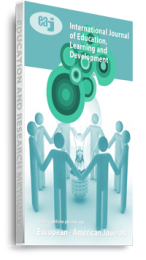The study examined career counselling needs for women in Rivers State, Nigeria. The survey method was used. A simple random sampling technique was used to select three hundred (300) female undergraduate students from a population of nine hundred. The instrument used for this study was the “Students Self Rating Career Counselling Needs Scale’ SSRCCNS) for data collection. The t-test statistics was used to test the two null hypotheses at 0.05 level of significance. The findings revealed that the two null hypotheses were accepted: There is no significant difference in career counselling needs between part-time female undergraduate students who are having academic problems, and those having clear standing. Also, it was revealed that there was no significant difference in career counselling needs between female part-time undergraduate students who are employed and those unemployed. Based on the findings some recommendations were made: (1) Universities in Rivers State should open service career counselling centre to assist students with their career counselling needs. (2) Career counsellors should pay attention to dual career women. (3) Career counsellors should assist students to express their fears about gender role stereotyping in the given culture.
Keywords: Career, Counselling, Nigeria, Women

